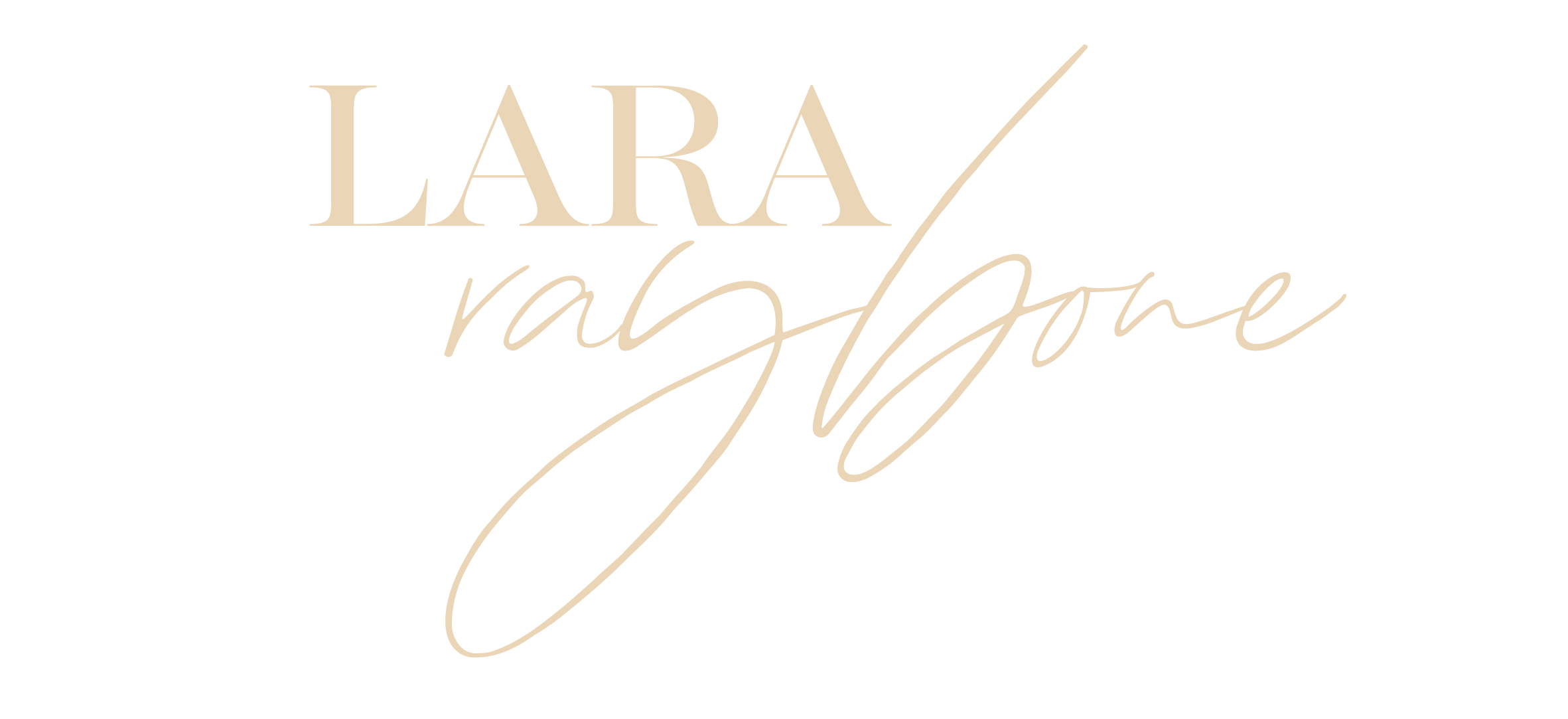Trusting your instincts can be a powerful tool in navigating life’s decisions and challenges. Our inner voice, often referred to as intuition, serves as a guiding force, helping us discern the right path even when logic and reason fall short. However, in a world filled with noise and distractions, tapping into this inner wisdom can be easier said than done. This guide will explore practical steps to unlock and trust your instincts, empowering you to make confident decisions with clarity and assurance. By understanding how to listen to and act upon your intuition, you can lead a life that is more aligned with your true self.
Understanding Your Inner Voice
What Is Your Inner Voice?
Your inner voice represents a deeper understanding and awareness within yourself. It is that subtle feeling or thought that nudges you in one direction or another, often without a clear, logical reason. This inner dialogue is a blend of your experiences, emotions, and subconscious knowledge. Unlike the chatter of everyday thoughts, your inner voice often feels calm and certain. It doesn’t shout; it whispers. This voice is not just about instinctual reactions; it also includes your values, beliefs, and personal truths. It is deeply personal and unique to everyone, shaped by individual life experiences. Recognizing this voice requires mindfulness and attentiveness, especially amidst life’s distractions. Cultivating a relationship with your inner voice can lead to more authentic choices and a stronger sense of self, helping you navigate life’s complexities with greater confidence and clarity.
The Science Behind Intuition
Intuition is often seen as a mysterious force, but it has a basis in science. Research in psychology and neuroscience suggests that intuition is a result of our brain processing information rapidly, drawing from past experiences and patterns. This quick judgment is often made without us consciously realizing it. The brain’s ability to recognize patterns and make connections quickly allows us to make decisions swiftly and effectively. Studies have shown that the gut feeling associated with intuition is linked to neural processes and the body’s response to stimuli. Our brains store vast amounts of information that aren’t always accessible through logical thought. Intuition taps into this repository of knowledge, providing insights when needed. Understanding the science behind intuition helps demystify it, highlighting that it is not just a mystical sense but a real cognitive process. Acknowledging this can encourage us to trust and cultivate our intuitive abilities further.
This 7 week programme is an embodied exploration, of the facets of the feminine, through the lens of sexuality. Click the image below to book your place.

Common Misconceptions
Intuition is often misunderstood, with several misconceptions surrounding it. One common belief is that intuition is solely a mystical or supernatural ability. In reality, intuition is grounded in our brain’s ability to process information quickly and subconsciously. Another misconception is that intuition is always right. While it can be a powerful tool, it is not infallible. Intuition can be influenced by biases and personal experiences, which may lead to errors in judgment. Some people also think that intuition and impulsiveness are the same. Intuition involves a deeper understanding and reflection, while impulsiveness often results from acting without thought. Additionally, many assume that intuition can’t be developed or improved. However, like any skill, intuition can be honed with practice and awareness. Recognizing these misconceptions allows us to have a clearer understanding of intuition, enabling us to better trust and develop our inner voice.
Recognizing Your Instincts
Signs Your Intuition Speaks
Knowing when your intuition is speaking can be challenging, especially with the noise of daily life. One sign is a persistent feeling or thought that nudges you in a particular direction, even when it seems illogical. This often manifests as a gut feeling or an inner knowing. Physical sensations, such as a sudden sense of unease or comfort, can also indicate intuition at work. You might notice a sense of clarity or peace when considering a decision aligned with your intuition. Another sign is the feeling of being drawn to certain people or situations without a clear reason. Intuition often speaks through subtle signals rather than loud proclamations. Paying attention to these signs requires mindfulness and self-reflection. By tuning in to these feelings and sensations, you can begin to recognize and trust your intuitive cues, allowing them to guide you more confidently in your decision-making process.
Differentiating Fear From Intuition
Distinguishing between fear and intuition can be tricky, as both can influence decision-making. Fear often stems from past experiences, anxiety, and the mind’s tendency to anticipate worst-case scenarios. It usually manifests as a loud, insistent voice in your head, driven by panic or worry. Intuition, on the other hand, is more subtle and calm. It doesn’t shout; it quietly suggests. To differentiate between the two, consider the nature of the feeling. Intuition tends to feel rooted in clarity and certainty, while fear is accompanied by tension and doubt. Reflect on whether past experiences or insecurities are fueling your emotions. Intuition is generally not influenced by past traumas or biases. Practicing mindfulness and self-awareness can help you tune in to your true inner voice. By recognizing the distinct characteristics of fear and intuition, you can make decisions that are more aligned with your authentic self, free from the constraints of fear.
Why We Ignore Our Gut Feelings
Ignoring gut feelings is common, often because we prioritize logic and reason over intuition. Society values analytical thinking, pushing us to rely on data and evidence rather than instinctual cues. This cultural emphasis can make intuitive insights seem unreliable or irrational. Additionally, fear of making mistakes can lead us to distrust our gut feelings, as we seek certainty and validation from external sources. Past experiences where intuition seemed incorrect might also cause us to hesitate in trusting it again. Moreover, the constant noise and distractions of modern life can drown out our inner voice, making it difficult to hear or recognize. Many people also lack confidence in their intuitive abilities, believing they need more experience or knowledge to make the right choices. Overcoming these barriers requires practice and trust in oneself. By creating space for reflection and listening to our inner voice, we can learn to trust and act on our gut feelings more confidently.
Building Trust In Your Instincts
Steps to Enhance Intuition
Enhancing intuition involves cultivating awareness and creating an environment conducive to listening to your inner voice. Start by practicing mindfulness, which helps you tune in to your thoughts and feelings without judgment. Regular meditation can also quiet the mind, making it easier to hear intuitive insights. Keeping a journal can be beneficial, allowing you to record feelings and hunches, and later reflect on their accuracy. This practice helps identify patterns in how your intuition speaks. Engaging with nature can also enhance intuition, as it promotes a sense of calm and connection to the present moment. Trusting your initial impressions, especially in new situations, can strengthen your intuitive muscle. Lastly, learning to let go of the need for immediate answers or certainty allows intuition to emerge naturally. By incorporating these steps into your daily routine, you can gradually build a stronger relationship with your instincts, leading to more confident and aligned decision-making.
Practicing Mindfulness Techniques
Mindfulness techniques are essential for enhancing intuition by fostering a deep connection with the present moment. These practices involve focusing your attention on the here and now, helping to quiet the mental clutter that can drown out intuitive signals. Start by dedicating a few minutes each day to sit quietly, focusing on your breath. This simple act can ground you and increase awareness of your thoughts and feelings. Body scan meditation is another effective method; it involves mentally scanning your body from head to toe, noticing any sensations without judgment. Incorporating mindful walking, where you pay close attention to each step and the rhythm of your movements, can also sharpen your awareness. Regularly practicing these techniques helps develop a heightened sensitivity to subtle changes in your internal and external environment. Over time, mindfulness creates the mental space needed to recognize and trust your intuitive insights, leading to more intuitive and confident decision-making.
Listening to Your Body’s Signals
Our bodies often communicate intuitive insights through physical sensations, making it important to pay attention to these signals. Common sensations include a flutter in the stomach, a chill down the spine, or sudden tension in the muscles. These feelings can act as indicators of your inner voice trying to communicate. To better tune into these signals, practice periodic body awareness checks. Take moments throughout your day to pause and notice any physical sensations without trying to change them. Reflect on what these sensations might be telling you about your current situation or decision. Consider the context and your emotional state when interpreting these signals, as they can provide clues about your intuition’s message. By regularly listening to your body, you can become more attuned to how it responds to different stimuli, enhancing your ability to recognize and trust your instinctive feelings, ultimately leading to decisions that align better with your true self.
Practical Applications of Intuition
Decision-Making With Confidence
Intuition can be a powerful ally in decision-making, guiding you toward choices that resonate with your true self. To incorporate intuition into your decision-making process, start by taking a moment to quiet your mind and reflect on the situation. Consider how you feel about each option on a gut level, beyond the pros and cons. Trust the initial impressions that arise, as they often contain valuable insights. Balancing intuition with rational analysis can help ensure that your decisions are well-rounded. If a decision feels right intuitively but lacks logical support, explore why this might be. Sometimes, intuition can reveal hidden factors that logic misses. Additionally, practicing patience in decision-making allows intuition to surface naturally, reducing the pressure to reach immediate conclusions. By trusting your instincts and integrating them with reason, you can make decisions with greater confidence, knowing they align with both your values and inner guidance.
Intuition in Professional Life
In the professional realm, intuition can play a crucial role in decision-making and problem-solving. It aids in reading between the lines in business situations, offering insights that data alone might not reveal. For instance, when hiring, intuition can help assess a candidate’s fit beyond their resume, sensing whether they align with company culture or team dynamics. In strategic planning, intuition can guide leaders to recognize opportunities or potential pitfalls that aren’t immediately obvious. Trusting your gut can also enhance creativity and innovation, as it allows you to explore unconventional ideas and solutions. However, it’s important to balance intuition with empirical evidence, ensuring decisions are grounded in reality. Regularly reflecting on past intuitive decisions and their outcomes can strengthen your ability to trust this inner guidance. By embracing intuition as a complementary tool to analytical skills, professionals can navigate complex environments with increased confidence and foresight, leading to more effective and aligned outcomes.
Enhancing Personal Relationships
Intuition can significantly enhance personal relationships by fostering deeper understanding and connection. It allows you to pick up on non-verbal cues and emotional undertones that might not be explicitly communicated. For example, you might sense when a friend needs support, even if they haven’t said so directly. Trusting these intuitive nudges can lead to more empathetic and responsive interactions. In conflicts, intuition can help you identify underlying issues and navigate challenging conversations with sensitivity. It can also guide you in setting boundaries, recognizing when a relationship may no longer be healthy. To enhance your relationships through intuition, practice active listening and be present during interactions, which can heighten your sensitivity to intuitive signals. Reflecting on past experiences where intuition played a role can deepen your understanding of this inner guidance. By integrating intuition into your interpersonal skills, you can build more meaningful and harmonious connections with others.
Overcoming Challenges
Addressing Self-Doubt
Self-doubt can be a significant barrier to trusting your intuition. It often stems from fear of making mistakes or a lack of confidence in your abilities. To address self-doubt, start by acknowledging it without judgment. Understand that it is a common experience and doesn’t define your capabilities. Reflect on past instances where your intuition led to positive outcomes, reinforcing trust in your inner guidance. Building self-awareness through practices like journaling can help identify patterns of self-doubt and their triggers. Setting small, achievable goals can also boost confidence, as each success reinforces your ability to make sound decisions. Additionally, surrounding yourself with supportive individuals who encourage your intuitive insights can provide validation and reassurance. Regularly practicing self-compassion and reminding yourself that it’s okay to learn from mistakes can mitigate the impact of self-doubt. By addressing self-doubt mindfully, you can strengthen your trust in intuition and make decisions with greater assurance.
Handling External Criticism
External criticism can challenge your confidence in following your intuition. It often comes from well-meaning individuals who prioritize logic or conventional wisdom over instinctual decision-making. To handle criticism, first recognize the intent behind the feedback. Consider whether it provides valuable insights or if it reflects the critic’s own biases and limitations. Maintaining a balanced perspective is crucial; be open to constructive criticism, but also trust your inner guidance. Strengthening your self-awareness can help you discern when to heed external advice and when to rely on your intuition. Communicating your thought process to others can also help them understand your decisions, reducing misunderstandings. Remember, not everyone needs to agree with your choices for them to be valid. Practicing resilience and staying true to your values and beliefs can empower you to navigate criticism effectively. By maintaining confidence in your intuitive decisions, you can overcome external challenges and stay aligned with your authentic self.
Sustaining Long-Term Trust
Sustaining long-term trust in your intuition requires ongoing practice and self-reflection. Begin by regularly evaluating past decisions where intuition played a role, noting patterns in outcomes and feelings. This reflection helps reinforce trust in your intuitive capabilities. Make a habit of journaling about intuitive experiences, capturing the context and emotions involved. Over time, this practice can reveal insights into how your intuition operates and strengthen your belief in its reliability. Additionally, maintain a routine of mindfulness and meditation to keep your mind clear and receptive to intuitive signals. Surround yourself with a supportive environment that encourages intuitive exploration, whether through relationships, books, or communities that value inner wisdom. Remember that trusting intuition is a journey, not a destination. Be patient with yourself, especially when faced with setbacks or doubts. By consistently nurturing your relationship with your inner voice, you can sustain and deepen your trust in intuition over the long term.

